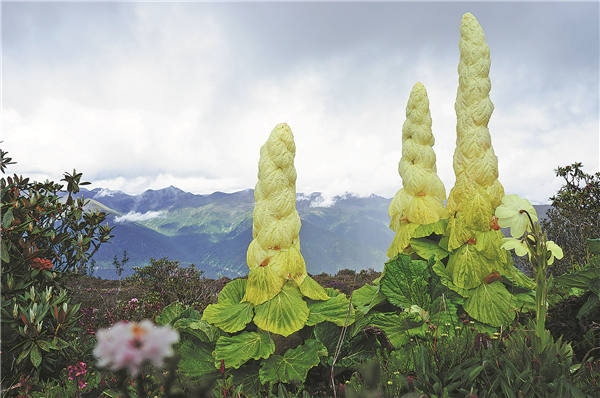

Luo has also staged lectures for younger students to better appreciate nature.
"Some of them might be influenced to become an expert in the field or take action to protect those rare animals in the future," Luo says.
"I believe what I do can be carried forward and is meaningful."
So far, Luo and his team have taken more than 300,000 photographs of Tibet's natural world and published 11 science popularization books.
Li Hui, a journalist based in Guangzhou, Guangdong province, admires Luo's perseverance with his cause. She covered Luo's trip in 2011 and experienced the hornet's attack herself.
"We ran like hell down the mountain to avoid the hornets, only to be stung during a tea rest at the local village head's home," Li says, adding that the experience made the trip even more impressive.
To Luo's relief, his work has already produced positive results.
The images of Zorotypus medoensis taken in 2012 have filled a void in the recordings of the creature since it was found by the Chinese Academy of Sciences in 1976.
"The only thing that was available to refer to the bugs before was a sketch," Luo says, adding that the small bug was found in rotten wood and was considered a living fossil in entomology and a valuable asset for studies into continental drift.
Moreover, Luo's biodiversity work for Basum helped the place become a major historical site under State protection in 2012.
Luo moved to Tibet with his military reporter father in 1970 when he was 6 years old.
"I remember people going on a pilgrimage to Tibet, wearing a big leather rope, and the scripture turning place was packed with people," Luo recalls.
He followed in his father's footsteps and became a photographer.
In 1985, Luo got enrolled into the photography class at the School of Journalism and Communication at Renmin University of China.
"Going to school was mainly to broaden my view," he says.
In 2008, Luo became executive editor of Tibet Geographic, but it didn't take long before he got tired of city life and started longing for home. So, later that year, he quit and returned to his old stomping ground.